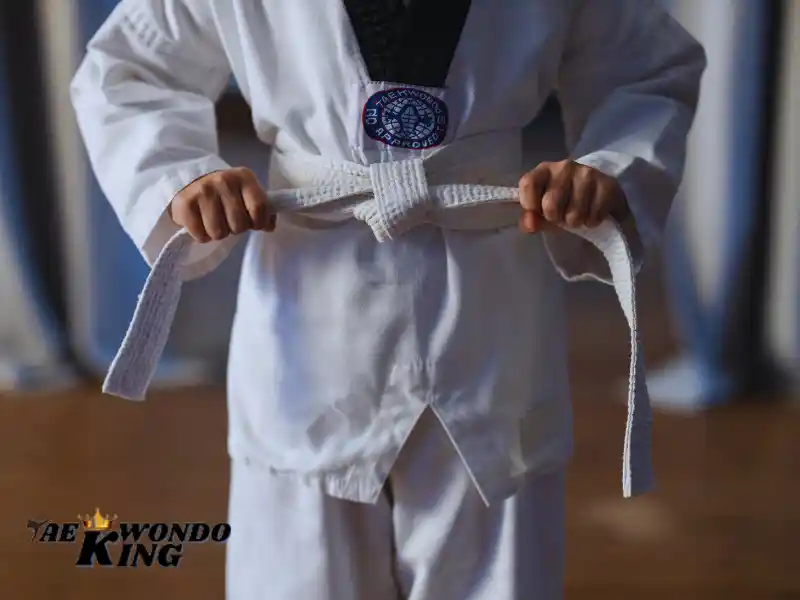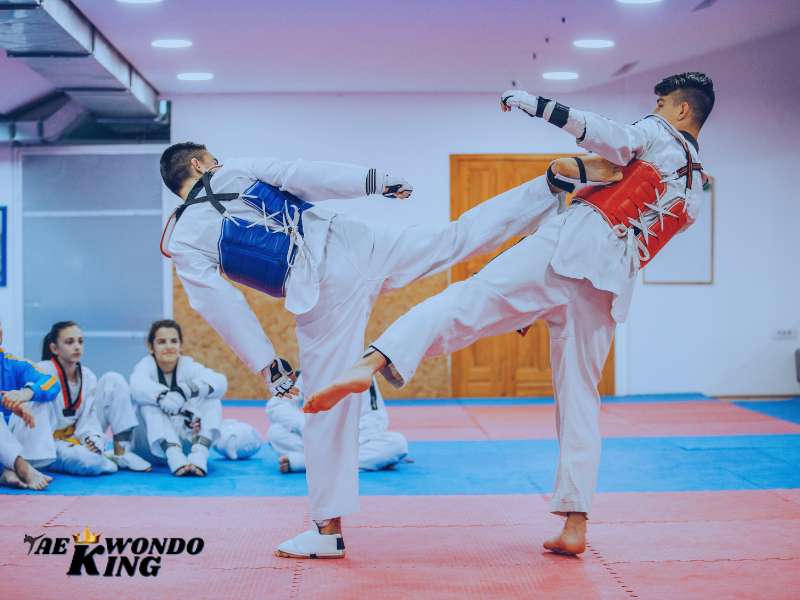
Have you ever wondered who holds the power to decide a gold medal match while you are watching the games in Bremen? An Olympics Taekwondo Referee is a top-tier official who controls the mat, ensures athlete safety, and makes split-second calls on points and penalties. I once stood just feet away from the action and realized these officials need faster eyes than the fighters to see every touch. With my years of work in the martial arts world, I can show you the hard work it takes to reach this high level of trust. Let’s look at what it takes to wear the white uniform on the world’s biggest stage today.
Understanding the Role of an Olympics Taekwondo Referee
An Olympics Taekwondo referee is tasked with upholding the guidelines, ensuring fair competition, and safeguarding the safety of participants. Referees are required to possess a comprehensive understanding of the sport’s rules, the capability to make rapid and impartial decisions, and the skill to navigate high-pressure situations on an international platform.
Referees are essential in maintaining fairness and integrity in sports, and Taekwondo is no different. Achieving the status of an Olympics Taekwondo referee is a distinguished accomplishment that requires commitment, knowledge, and enthusiasm for the sport. This guide details the steps, qualifications, and guidelines to assist you in starting your path toward becoming an Olympics Taekwondo referee.

Step 1: Learn the Basics of Refereeing in Taekwondo
To initiate your path as an Olympics Taekwondo referee, it is necessary to establish a solid foundation in Taekwondo and its officiating standards. Essential areas to emphasize include:
- Acquainting yourself with the World Taekwondo (WT) regulations.
- Grasping the scoring system and sanction guidelines.
- Enhancing communication abilities to professionally interact with players, coaches, and spectators.
Step 2: Train as a Taekwondo Practitioner
To qualify as an Olympics Taekwondo referee, you must have direct experience in the sport. Secure at least a black belt (Dan) to showcase your proficiency and comprehension of Taekwondo maneuvers. Active involvement in competitions will also provide insights into the dynamics of a match, preparing you for your forthcoming role as a referee.
Step 3: Obtain National Referee Certification
Before qualifying as an Olympics Taekwondo referee, it is necessary to acquire a national referee license. This includes:
- Joining Your National Federation: Become affiliated with your nation’s recognized Taekwondo governing organization.
- Completing a National Referee Course: These courses encompass both the theoretical and practical elements of refereeing.
- Passing the Certification Exam: Show your understanding of the rules and your capability to officiate matches.
After certification, you will acquire experience by officiating in local and national tournaments, creating a foundation for your international refereeing career.
Step 4: Achieve International Referee Certification
To officiate at the Olympic standard, you must obtain an International Referee (IR) license from WT. Follow these steps to progress:
- Participate in a WT International Referee Seminar, where you will learn advanced rules and guidelines for officiating global competitions.
- Pass the demanding examinations to acquire your IR license.
- Gain experience by officiating in WT-sanctioned international events, an essential step to qualify as an Olympics Taekwondo referee.
Step 5: Build Your Reputation
As a prospective Olympics Taekwondo referee, your reputation within the refereeing community is crucial. Officiate regularly and professionally in significant international competitions such as the World Taekwondo Championships and Grand Prix events. Displaying fairness, precision, and calmness under pressure will bolster your candidacy for Olympic selection.
Step 6: Meeting Olympic Selection Criteria
Selection as an Olympics Taekwondo referee relies on performance, experience, and qualifications. Important criteria include:
- A demonstrated history of officiating international competitions.
- Positive evaluations from WT officials.
- Language skills, particularly in English, to communicate effectively on the global stage.
The Vital Role of an Olympics Taekwondo Referee
The main job of an Olympics Taekwondo Referee is to keep the match fair and safe for both fighters. They manage the flow of the fight, give out “Gam-jeom” penalties, and check that the electronic scoring gear is working right. In the USA, many fans find it helpful when the official uses clear hand signals so everyone in the stands knows exactly why a point was given. These experts are the “nodes” of the match, linking the rules to the live action without missing a beat.
- Center Official: They stay on the mat to start and stop the fight with loud, clear voice cues.
- Corner Judges: These people sit at the edges to help score moves that the sensors might not catch.
- Review Jury: They watch slow-motion video to fix any errors made during the fast-paced rounds.
Summary: Referees act as the primary authority on the mat, balancing the high speed of the match with strict safety rules.
How to Become a Certified Official
To work as an Olympics Taekwondo Referee, you must climb a long ladder of tests and local events. You start as a club judge and work your way up to “International Referee” (IR) status over many years. Many US officials spend their weekends at state games just to get the hours they need to qualify for world trials. It takes a deep love for the sport and a very calm mind to handle the stress of a global final.
| Career Step | Level | Key Focus |
| National | Local/State | Basic Rules & Kid Safety |
| International | World Opens | Precision & Speed |
| Olympic | The Games | Peak Fairness & Mastery |
Summary: Reaching the Olympic level requires a decade of training and proof of excellence at major world tournaments.
My Personal View on the Pressure
I remember talking to a friend who worked as an Olympics Taekwondo Referee, and they said the hardest part is the “Video Replay” check. It is great for getting the call right, but it puts your work under a giant lens for millions of people to see. Even when the crowd is loud, the best officials stay cool and trust their eyes and their training. It is a tough job, but seeing a clean match end with a fair win makes all the long hours worth it.
Summary: Successful officiating at the highest level requires immense mental strength to remain calm under global public scrutiny.

Guidelines for Aspiring Olympics Taekwondo Referees
To achieve success as a Taekwondo referee at the Olympics, follow these crucial guidelines:
- Ongoing Education: Keep informed about modifications to WT regulations and officiating criteria.
- Physical and Mental Well-being: Ensure you are fit both physically and mentally to perform well during high-pressure matches.
- Professional Integrity: Always emphasize fairness, neutrality, and respect for every participant.
What qualifications are required to become an Olympic Taekwondo Referee?
To qualify as an Olympic Taekwondo referee, you must possess a black belt in Taekwondo, typically at least 4th Dan or above. And be certified as an international referee by World Taekwondo (WT). Having experience officiating regional and national tournaments is also crucial.
How do I begin the path to becoming a Taekwondo Referee?
The path starts by attending local referee training seminars conducted by recognized Taekwondo federations. You need to obtain certification as a national referee before advancing to international certification. Regular participation in tournaments aids in developing your skills and reputation.
What does International Referee certification in Taekwondo entail?
International referee certification is a credential provided by World Taekwondo (WT). Upon the completion of their thorough training and evaluation program. This certification enables referees to officiate in WT-sanctioned international competitions, including the Olympics.
How much time does it take to become an Olympic Taekwondo Referee?
The process of becoming an Olympic Taekwondo referee can span several years. Depending on your experience and advancement through the ranks. It mainly includes years of practice as a national referee. Followed by acquiring international certification and accumulating extensive experience at high-level tournaments.
Are there any age restrictions for Taekwondo Referees?
Although there is no specific minimum age, referees are generally expected to be adults with several years of Taekwondo experience. For referees at the Olympic level, there may be extra age restrictions to ensure both physical and mental fitness for officiating at the highest level.
What are the duties of an Olympic Taekwondo Referee?
An Olympic Taekwondo referee holds the responsibility of enforcing the rules. Ensuring fair play, and maintaining competitor safety. Their responsibilities include scoring, overseeing compliance with regulations, and settling disputes during matches.
Conclusion
Becoming a Taekwondo referee for the Olympics is a path that necessitates commitment, expertise, and adherence to the sport’s principles. From understanding the basics to receiving international accolades. Every phase brings you nearer to officiating at the grandest event in the world. By adhering to this guide, you can transform your enthusiasm for Taekwondo into a chance to embody fairness and excellence at the Olympics.
Embark on your journey today, and someday, you may have the privilege of serving as an Olympics Taekwondo referee. Ensuring that the essence of fair play shines brightly on the worldwide stage.
FAQs
Yes, referees participate in comprehensive training concerning Olympic-specific regulations and protocols. They are required to stay informed on any rule modifications. Or amendments enacted by World Taekwondo (WT) and to pass periodic tests to keep their certification valid.
Yes, proficiency in English is crucial for Olympic Taekwondo referees since it is the official language of World Taekwondo. Communication during matches, briefings, and reports must be conducted in English to ensure clarity and consistency.
Referees are appointed for the Olympics by World Taekwondo based on their performance, experience, and reputation in international tournaments. They are also required to pass physical fitness evaluations. Rule examinations, and remain actively involved in officiating WT events.
Olympic Taekwondo referees encounter difficulties such as remaining impartial. Managing high-pressure scenarios, and accurately interpreting fast-paced events. They must also deal with scrutiny from coaches, and athletes. And spectators, while safeguarding the competition’s integrity.


Founder, Owner, and CEO of TaekwondoKing.
He is one of the top 100 martial artists in the World and among the top 20 referees in Bangladesh.
Ehatasamul Alom is an esteemed Kukkiwon Certified Taekwondo 3rd Dan Black Belt with over 15 years of experience in this dynamic martial art. Born in Rajshahi, Bangladesh, Ehatasamul’s journey with Taekwondo began at the tender age of seven. His passion led him to compete at national and international levels, where he has bagged numerous awards and honors. He is also a member of the Taekwondo National Referee Panel.
With a Bachelor’s degree in Sports Science from the prestigious Rajshahi University, Ehatasamul has a deep understanding of the technical and scientific aspects of martial arts and some other martial arts.
In 2022, Ehatasamul created the “TaekwondoKing.com” to share his knowledge, Free Resources, Values, and Real experiences. His articles focus on Taekwondo training techniques, competition strategies, Sport Products Reviews, and the art’s rich history and philosophy. He also writes about the importance of mental fortitude and discipline, key aspects of his teaching philosophy. He has already launched many sports, Taekwondo, and health-related Free online tools. His goal is to inspire both beginners and seasoned practitioners worldwide through insightful and engaging content.
If you need any help, contact Ehatasamul Alom at any time.




